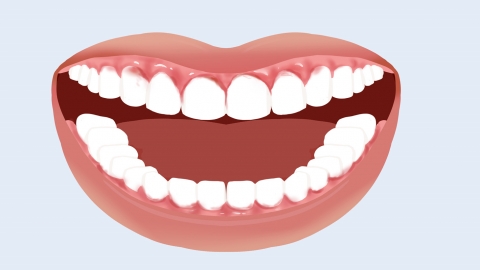What should a 16-year-old high school student with bruxism do?
Bruxism in 16-year-old high school students can be managed through interventions such as adjusting daily routines, relieving stress, dental correction, wearing mouth guards, and improving diet. Most cases are associated with academic pressure and不良 habits; timely adjustments can reduce dental damage. If symptoms such as tooth soreness, gum bleeding, or facial muscle pain occur, prompt medical consultation is recommended.
1. Adjust daily routine: Ensure 8–9 hours of sleep per day. Avoid staying up late studying or using electronic devices. Maintaining a regular schedule helps stabilize the nervous system, reduces the frequency of nighttime teeth grinding, and prevents symptom worsening due to fatigue.
2. Relieve stress: Release academic pressure through physical exercise, listening to music, or other relaxing activities. Avoid excessive thinking about schoolwork before bedtime. Keeping emotions stable helps prevent abnormal contractions of the chewing muscles caused by mental tension, thereby reducing bruxism.

3. Dental correction: If bruxism is related to misaligned teeth or abnormal bite, orthodontic treatment under medical guidance can help adjust the occlusion, reduce occlusal interference, and address the root cause of teeth grinding.
4. Wear a mouth guard: Wearing a custom-fitted mouth guard during sleep prevents direct contact and friction between upper and lower teeth, protecting the enamel from wear. It also reduces strain on the chewing muscles and alleviates morning tooth soreness.
5. Improve diet: Avoid eating snacks, drinking carbonated beverages, or consuming caffeine-containing drinks before bedtime to reduce oral stimulation. Consume more foods rich in calcium and vitamins in daily meals to enhance tooth health and minimize damage from bruxism.
During meals, chew slowly and thoroughly. Avoid biting hard objects with teeth. Rinse your mouth after eating to maintain oral hygiene, and have regular dental checkups. Developing good daily habits can support improvement of bruxism.




